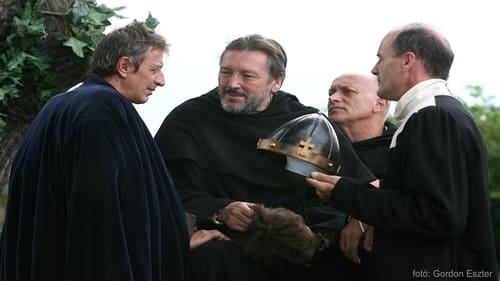
Editor
Concerning the Mátyás era in Hungarian history, during the reign of Matthias Corvinus (1443–1490), the film focuses on three eras of the king's life: the young Mátyás fights for the throne, the older Mátyás as king, and the fate of the royal crown and the royal heir after his death.

Editor
Jancsó’s farce, similar to the previous ones, is about our time and about death. Pepe marries into a family of mafiosi, with the father-in-law rolling in money. In a joint venture they establish the first Hungarian Prison Limited company, where there is a menu, the prisoners are residents, and they furnish the place of execution for those volunteering to execute themselves. It turns out that the first voluntary hanging should be demonstrated on Pepe. In 180 AD Emperor Marcus Aurelius is dying in Vindobona, being fed with blades of hay by uncle Miki himself, and his son Kornél Mundruczó. Kapa provides for communication: he insists on telling lies, lies and again lies. Furthermore, there are several to die and to revive, to win and to lose, and Melancholy Béla is still alive.

Editor
By the notes of Fiáth Pompeiusz, the one-time friend of Kapa and Pepe, Professor Szirtes has solved the secret of the time machine, and he realizes the invention relying on "special" H2O. Kapa and Pepe shall return by it into the past in order to set time right, which is out of joint, that is, to correct history, to save King Louis II, and prevent the Mohács Disaster. Pepe yields to the not too tender persuasion to enter upon the great journey through time, dies and revives, and they arrive at the battlefield of Mohács in time. Kapa films the events. The Turks win and cut off the king’s, Pepe’s, head, still the Hungarians dictate the peace treaty. Kapa and Pepe want to return, they fill the time machine up with water from the well, yet it won’t start. Even so Kapa and Pepe hover over Budapest and quarrel.

Editor
The Hungarian version of the "The Seven Samurai" and "The Magnificent Seven".

Editor
This time, Kapa and Pepe are first of all prisoners of war – and convicts taken to forced labor service, Jews, Hungarian soldiers, German soldiers. Once they are to be executed, then again they are to perform executions. The film tells in spectacular episodes about the fact that in the past more than one century and a half we kept marching from war to war; occupation and liberation turned out to be indifferent, and why couldn’t the Jews execute the SS-guys? Our heroes hover about dilapidated barracks, then again on the bridges of the capital they guess whose satellites or eternal friends for all times we might be just now. In the cupboard, among the preserved fruit bottles, Stalin is still hiding. The authors of the film are cited before court, then in a showcase hospital they are waiting for the end to come. A Soviet soldier-maid closes the film with a Péter Nádas-quote.

Editor
Intitulado "The Cello"(O Celo), esta é a segunda parte do projeto que reúne diretores de todas as partes do mundo para dar a sua visão do tempo. Aqui,oito cineastas falam sobre o nascimento,a morte,o amor,o drama de cada momento da vida e mitos passados. A primeira parte do projeto,"The The Trumpet" (O Trumpete) reúne sete cineastas.
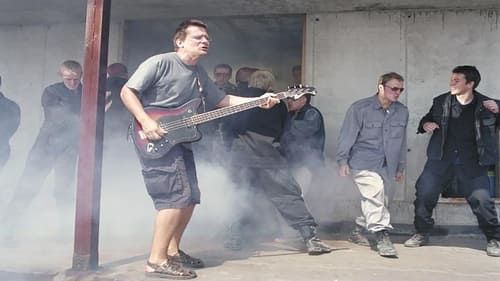
Editor
Waiters’ competition at Heroes’ Square in the late thirties. Dressed as waiters, Kapa and Pepe awake in the bronze chariot of the millennial sculpture group. They drive along the Danube promenade, and on the concrete reinforcement of the demolished Budapest rondella hotel they get involved in a showdown of political background. In the burnt-down Sports Hall the waiters train for a last supper, Pepe and Kapa run around the big laid table with trays in their hands. While doing so, Pepe keeps crying out: "I am the best one, I am the most beautiful one, I am the king, I am the god..." Sitting in a boat on the Danube, a ship goes past them, and the Niagara falls, majestic and breathtaking, resound in their ears. On each passing away something new will come to life – as rapped by Sub Bass Monster.

Editor
Kapa, Pepe and Mesi would like to buy a scrapyard of trains, to start a nostalgia train and earn a lot of money. The capital to start with they want to get from grandpa, who has come home from America with a suitcase full of money. Everybody wants Mesi to approach the old man, because she is the only one he would speak to. But Mesi is more concerned with the idea that she wants a child, by now from anyone, while Pepe is jealous. Kapa’s alleged son emerges, with the mafia behind him: they, too, are eager to get grandpa’s money. After threats and blackmailing, poisoned apples are sent, with only one side of them poisonous. Those dead, by the way, are resurrected by the sound of a song. At last, nobody manages to get the money, but it wouldn’t make sense anyway: it’s all fake. The Statue of Liberty, however, turns out to be blind.

Editor
In the Kerepesi Street cemetery, three grave diggers contemplate the fate of the world, then they step out of this role and in a sequence of episodes they play the typical figures of contemporary Hungarian reality, the fat cat, the swashbuckler, the victim, underworld chieftains, and present little absurd dramas of love, marriage, friendship, public order and legal safety. The author and the film director walk among them all the time, contemplating, laughing at their plays. The stories starting from the graveyard and returning there warn of the inevitability of death. The author and the director (Gyula Hernádi and Miklós Jancsó) wisely make friends with death.

Editor
The second film in Miklós Jancsó's documentary series Message of Stones.

Editor
From the film-shooting in the Buda Castle Marci and his friend go to a well-paying job. The scene is a big castle in the middle of a huge park. They enjoy the company of the Kid and the beautiful naked French girl, Nathalie. Their job is to watch the monitors on which they can see the Moscow coup détat. By the time Gorbachev is executed the Communist and the Nationalists have taken turns in occupying the castle and the park.

Editor
Jancso emphasizes highly evocative and ambiguous imagery over dialog or exposition. Here he seems primarily interested in showing the painful, stunted lives of Hungary's intellectuals, who are shown as remaining silent and ineffectual during various political crises. There are several action sequences involving chases and shootouts, but since there's no clear narrative we're not sure how they relate to each other or to anything else. The film is, however, visually fascinating, with shots of police cars, horses, and naked bodies juxtaposed and extensive use of multiple video imagery.
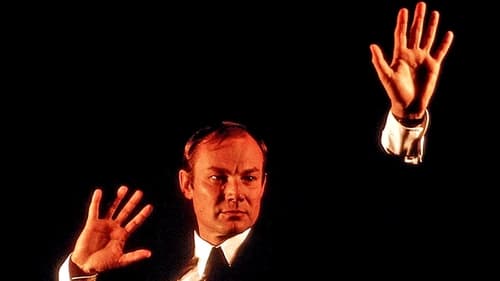
Editor
A man's story parallels Hitler's rise. Austrian Klaus Schneider, wounded in World War I, recovers in the care of Dr. Emil Bettleheim. Bettleheim discovers that Schneider possesses powers of empathy and of clairvoyance, such that could aid suicidal patients. After the war, with one friend as his manager and another as his lover, Schneider changes his name to Eric Jan Hanussen and goes to Berlin, as a hypnotist and clairvoyant performing in halls and theaters. He always speaks the truth, which brings him to the attention of powerful Nazis. He predicts their rise (good propaganda for them) and their violence (not so good). He's in pain and at risk. What is Hanussen's future?
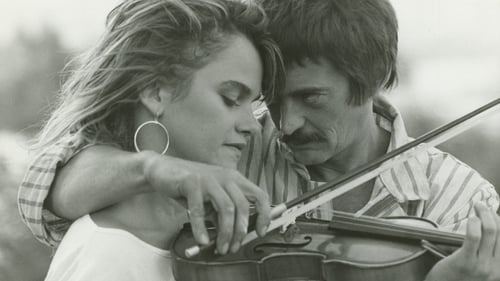
Editor
Zoltai is a Hungarian professor who returns home after a visit to the United States. Following a television interview, he commits suicide and leaves a note for his longtime friend Dr. Bardocz. The doctor and Zoltai's colleague Komindi join the police in investigating what drove the man to suicide.

Editor
Contemporary genre-painting of a Hungarian "middle class" family of four. The scene is the villa apartment almost finished, where the tourist guide mother, father who also works for the second economy and the lonely big girl preparing for her maturity examination turn up alternatively. It is only the teen-ager boy who really "lives" in this place: instead of attending school he stays home all day and observes the life of the surrounding by a self-made periscope. Internal communication of the family is accomplished in writing, on the pin-up board in the kitchen.

Editor
Two rabbis show the ruins of an abandoned synagogue to a group of primary school-age Jewish children, and stand by as the children dip bread in honey, drink wine, pray, and sing.
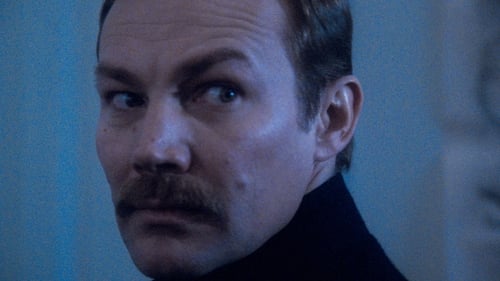
Editor
Ambientado durante a glória do império austro-húngaro, o filme conta a ascensão e queda de Alfred Redl (Brandauer), um jovem e ambicioso oficial que sobe a escada para se tornar chefe da Polícia Secreta e se enredar em problemas políticos. (e 14 - Estimado 14 Anos)

Editor
The parents of Kabala (Lucky Charm) and Facsiga (Wooden Top) are divorced. Kabala, an adolescent girl was awarded to the father, while Facsiga, the younger brother was awarded to the mother, but they do not really belong to anyone. The two children want to live together at all costs.

Editor
A historical drama set in the 1400s, a young man sent to Italy but is forced back after his father's mysterious death.
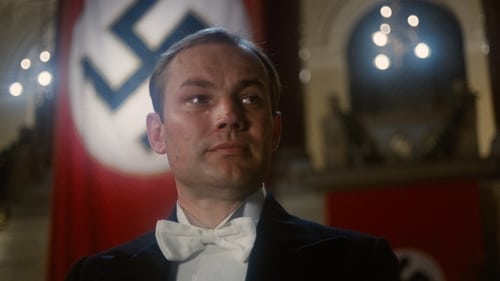
Editor
Alemanha, 1930. Hendrik Höfgen (Klaus Maria Brandauer), é um ambicioso ator que não se interessa por política, se dedicando somente à sua carreira. Porém, quando os nazistas começam a tomar o poder, ele aproveita a oportunidade para interpretar peças de propaganda nazista para o Reich, e logo acaba se transformando no mais popular ator da Alemanha. Consumido pela fama, Handrik agora precisa sobreviver em um mundo onde a ideologia do mal é seu pior pesadelo e o verdadeiro preço da alma de um homem, se transforma na medida mais desprezível de todas. (e 16 - Estimado 16 Anos)
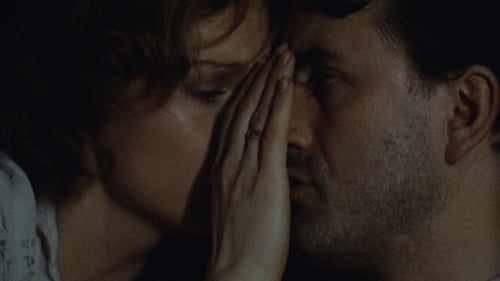
Editor
Janos and Kata are thrown together during the Second World War and forced to pose as husband and wife to hide from the Nazis. The intensity and suffocating intimacy of their new relationship and the circumstances in which they find themselves, forces them to confront past prejudices and assumptions and challenge what they truly believe.

Editor
Zsadányi flees from the authorities with his goddaughter, Bankós Mari, and they escape into the forest. The film then skips ahead thirty-fold years: Zsadány and Mari are now lovers, with the sound of war in the background halting their romance. The old friends of Zsadányi have joined with the Nazis, and the landowner living with his peasants in a socialist community grows distant from them. Zsadányi is held responsible for political problems in the country, and will pay with his life.

Editor
In the late 17th century, Hungary moved from Turkish to Austrian domination, becoming a key part of the Austro-Hungarian Empire. In this story, which takes place shortly after that time, three outlaws murder a group of people on their way to a wedding. One young man was a slave travelling with the group to entertain them with his skills as a trumpeter. The outlaws spare him for the same reason. He allows himself to believe that they are really an unattached group of independence-fighters, but after seeing their brutal and callous ways, he cannot believe that they are good men, and he turns them in to the authorities. At that point, he is unnerved to discover how nobly they bear the rigors of captivity. ~

Editor
The characters of this fiction of sociogra-phic accuracy live in the reformatory school for girls in Rákospalota. They are all girls of similar pasts, desires and needs but Juli hates bars more than any of them, trying to make contacts with the world out there in order to leave the school behind forever.

Editor
This satire on film depicts the micro-climate of a technical vocational school newly established at a housing estate. The construction vocational school holds a name-giving ceremony, thus calling the attention of its supervisory organ to itself. The school-master distributes as well as receives presents from the sponsoring factory, and the pupils sit for a written examination of unheard-of material. The results are devastating, which the despotic school-master attempts to conceal by a staged disciplinary procedure.

Editor
Mr. Dezső and Rezső are selecting the heroes for their new operetta. They represent different tastes and styles, and keep arguing about the casting of the four boys and four girls.






















